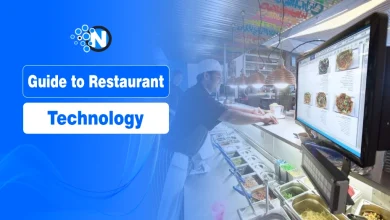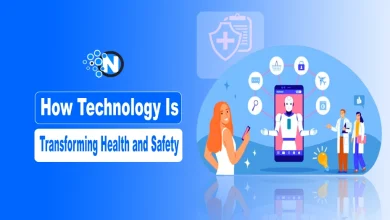How Experience-Based Venues Use Technology to Attract Customers

There has been a noticeable shift in customer expectations over the last few years. Today, they aren’t just looking to be entertained; that’s par for the course. What modern customers desire is to be a part of a bigger experience. They want something personalized, something that reacts to them. In short, they want an experience they’ll talk about afterward. For experience-based venues, that’s a tall order, and one that’s increasingly met with the help of technology.
And this is true whether you’re running an immersive art show, an interactive golf venue, or a hybrid event space. It’s no longer enough to offer a good ol’ time. You need to tap into those customer desires and help make them come true, and for that, you need the right technology. One that makes the experience smooth, trackable, and repeatable.
In this blog post, I will shed light on how experience-based venues use technology to attract customers and keep them hooked.
Let’s start!

What Tech-Forward Venues Are Getting Right
To be clear, when we talk about using “the right technology,” we’re not talking about the ultra-flashy stuff. The most successful venues are simply using those tech solutions that improve their overall flow, which differs from venue to venue.
A good example is Atomic Golf, which has made its mark with digital score tracking, responsive gameplay, and streamlined ordering all in one environment. It’s both fun and frictionless, so guests end up spending more and staying longer.
Other venues are following suit, each in their own way. Sandbox VR, for instance, leans into full-body sensors and tactile feedback to build ultra-immersive virtual environments. For some venues, this may be too much, for this one, it makes perfect sense. Meanwhile, places like The Rec Room in Canada combine gaming, dining, and mobile interactivity into a single cohesive system.
The throughline is clear: these experiences are designed for particular customers (personalized), not just offered.
Booking Platforms Are Part of the Experience
Something many businesses still miss is the fact that your guest experience starts before anyone sets foot on-site. Meaning, it starts with the booking system. If it’s slow or non-intuitive, or if people can’t reserve easily on mobile, you’re sabotaging yourself.
Platforms like Tock and SevenRooms address these common issues by offering:
- Dynamic pricing options based on time and demand
- Upselling capabilities for experiences, add-ons, or premium seating
- Pre-visit personalization (e.g., tagging birthdays or dietary preferences)
- Streamlined mobile UX and automated confirmations
You can also integrate them with loyalty programs and automate confirmation and follow-up messages. And all of it works cleanly on mobile, which is key.
All of this matters more than it may seem. According to PwC, 73% of consumers say customer experience is a key factor in purchasing decisions, yet less than half feel brands are delivering on it. Closing that gap starts with how you handle the basics.
Smart Gamification Drives Repeat Business
Gamification isn’t just for apps and loyalty cards anymore. It’s now a major driver of in-venue engagement, too. Done right, it turns a casual visit into a challenge, a competition, or even a series of return visits.
Atomic Golf, again, nails this. Real-time scoring, social leaderboards, and team challenges turn a simple game into something people want to beat and share. But smaller venues are doing this well as well. There are now bars that run trivia leagues with points tallied in an app, escape rooms offering tiered achievement badges, and even arcades using RFID wristbands to track high scores across games.
What’s key here is feedback. Guests want to know how they did. And when there’s a next-level prize (or even just recognition) it becomes something they want to try again.
Automation Behind the Scenes Keeps Things Running Smoothly
The tech isn’t only about the guest-facing layer. Much of its value is realized through operational efficiencies that also impact service quality.
For example:
- HVAC systems that adjust based on occupancy or zone usage
- Lighting that adapts to the time of day or the guest flow
- Sensors that track crowd density and trigger automated adjustments
- IoT integrations that connect music, digital signage, and climate control
All of these things matter. And when they’re tied into your larger systems, they create consistency without constant staff intervention.
Think of it as the connective tissue. Your POS, digital signage, HVAC, crowd monitoring; they all work better when they’re integrated. That creates smoother operations as well as frees up your team to focus on what people do notice: good service, fast response, and a space that feels alive.
What to Prioritize First
Not sure where to start? These are the areas worth investing in:
- Online Booking That Converts. Streamline reservations, include upsells, and personalize pre-visit details.
- Mobile-First Interaction On-Site. Let guests manage orders, view maps, or play through their phones.
- Gamification and Loyalty Tools. Track progress, give rewards, and build reasons to return.
- Smart Environmental Controls. Automate temperature, lighting, and signage to optimize flow.
- Content That Adds Value. Screens, audio, or even AR features that react to guest behavior.
Bottom line is, if it helps the guest have a smoother, richer, or more memorable experience, it’s more than likely worth the investment.
Data Can Be a Differentiator If You Use It Ethically
With a lot of tech comes a lot of data, and it can be easy to get lost in the chaos of it all. But if you use it wisely and transparently, there’s no question it works.
Transparency is especially important here, not only for ethical reasons but also because guests are more willing to share behavioral data if they see the upside of doing so: smoother check-ins, better personalization, smarter recommendations, etc. But you need to let them opt in, give them access, and respect the boundaries. This is part of how you build trust. And with growing awareness of data ethics, getting this right can actually set you apart.
Summing Up
At a time when customers expect more and attention spans are shorter, no business can afford to treat technology as a nice-to-have anymore, especially experience-based businesses. For these venues, tech solutions need to be a core part of the experience strategy.
But here’s the thing: it’s not the tech itself that wins loyalty. It’s how well it’s integrated into the entire guest journey. From the first search to the visit, all the way to post-visit follow-up, it all matters. Because what people ultimately want is something that feels cohesive, responsive, and worth their time.




